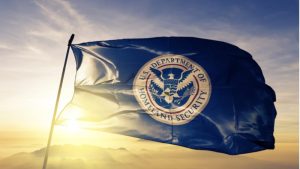The National Geospatial-Intelligence Agency (NGA) has once again launched a 10-week paid summer research fellowship available exclusively to faculty from historically black colleges and universities (HBCUs) – for the second year in a row. The program was first created in 2022.
New York City has launched the MyCity Portal, which aims to help New Yorkers easily check eligibility, apply for, and track city services and benefits. Users will also be able to securely save their information and documentation for future applications as they apply for child care.
In honor of International Transgender Day of Visibility earlier this month, New Jersey Governor Phil Murphy announced the launch of a new transgender information hub, Transgender.NJ.gov.
North Dakota Gov. Doug Burgum has signed legislation that requires cybersecurity education for all K-12 students – making it the first state in the union to do so.
The Virginia Information Technologies Agency (VITA) announced that it has selected Everlaw, a cloud-native investigation and litigation platform, for a multi-year standardized contract to transform the commonwealth’s legal technology.
The University of Hawaii (UH) at Mānoa has expanded access to its virtual reality public speaking lab. The lab, managed by the Center for Communicating Scientific Information in the Communicology Program, uses technology that allows the user to practice speeches and receive immediate feedback.
New York State announced it plans to launch the new Worker Adjustment and Retraining Notification (WARN) Act Portal next month. The portal, part of the New York State Department of Labor’s (NYSDOL) multi-year technology modernization plan, will give businesses the ability to file notice of layoffs in a faster, more streamlined manner and will provide workers more time to transition into new employment.
Code for America, a civic tech nonprofit, announced the second cohort of state and local partners for its Safety Net Innovation Lab. As part of the next cohort, Code for America will work with New York, New Mexico, Maryland, and the District of Columbia to “reimagine and rebuild the delivery of safety net benefits.”
The Department of Homeland Security (DHS) has launched a new website aimed at simplifying access to grants and other resources to deter domestic terrorism acts.
Ahead of the state’s April 4 election, Dunn County, Wis., is rolling out new voting technology aimed to streamline the voting process.













